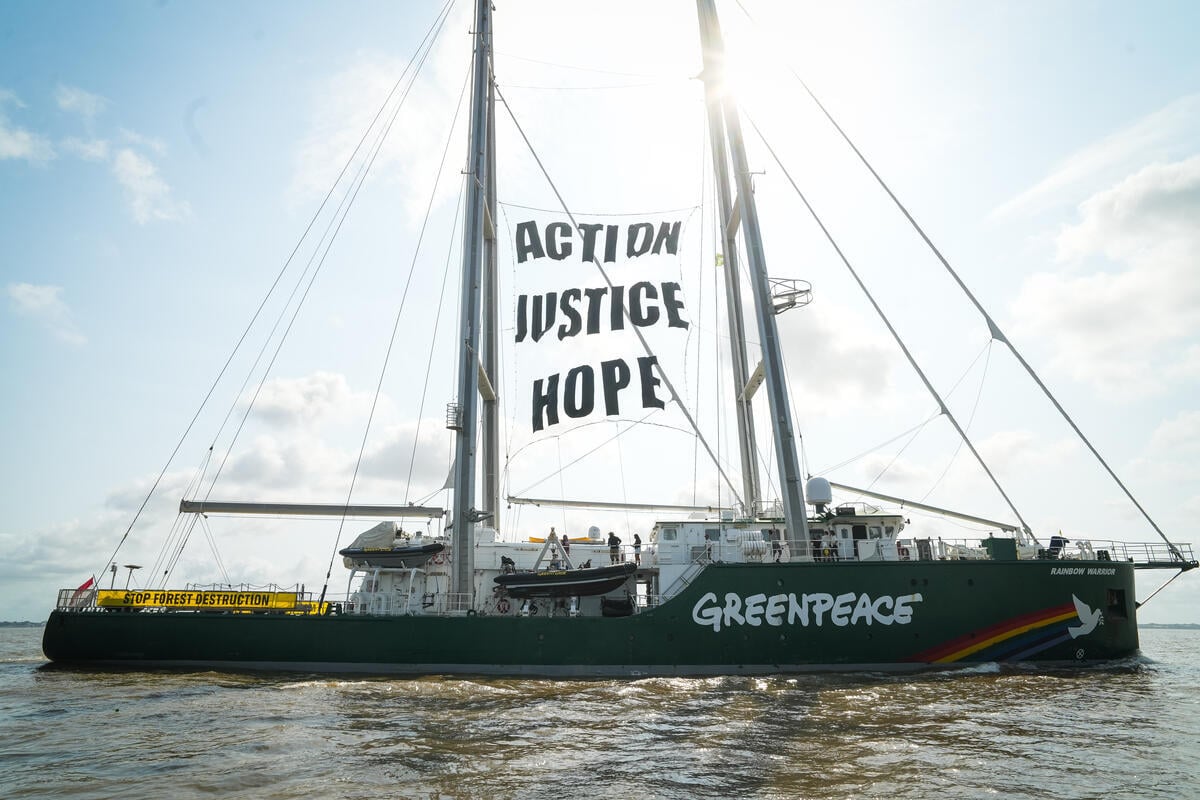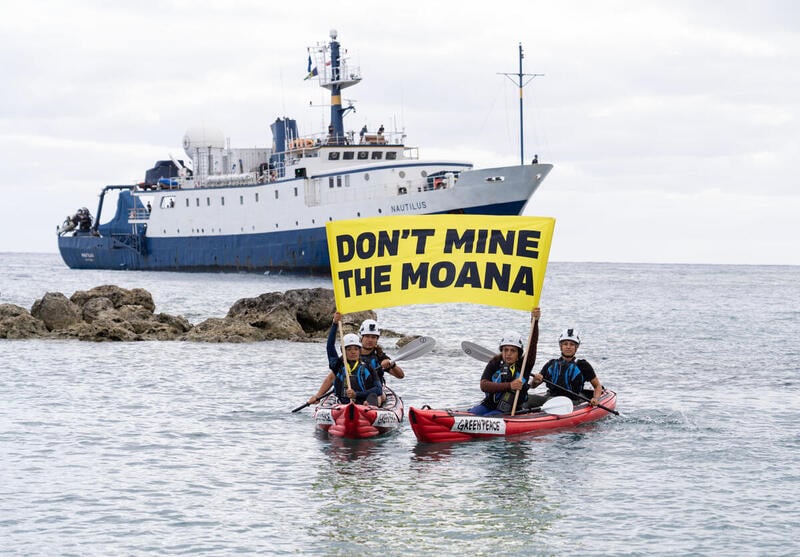As a marine scientist, I have dedicated my life to the study of the ocean. My speciality is sharks – the fascinating apex predators that still manage to surprise me, hundreds of encounters later. Swimming with these gentle and prehistoric fish is a privilege, and I take great joy in introducing people to the wonders of these misunderstood creatures.
But beyond getting people interested in life beneath the waves, I think it’s my responsibility to raise alarm bells when they need ringing.
As a key indicator species, shark numbers can show how well an entire ecosystem is doing. The bad news is they’re not doing great, and by that token, we should be deeply concerned about the state of the ocean to which they belong.
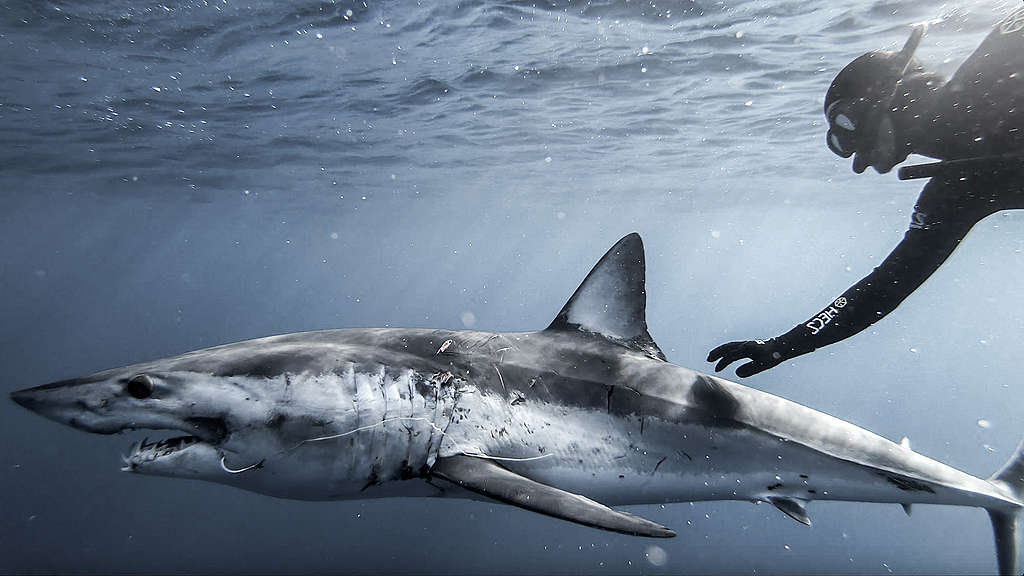
Globally, shark populations have declined by 70 per cent in the past 50 years. In the Pacific Ocean alone, 3.3 million sharks are caught each year as fishing bycatch. In New Zealand waters, sharks and thousands of other creatures such as, penguins, dolphins and albatross, are killed in this way, caught up in lines and nets as part of the fishing process.
The deaths of these animals is seen by the fishing industry as simply a consequence of doing business; it’s labelled ‘bycatch’ and is tallied in tables for reports that acknowledge such numbers are a mere estimate – the tip of the actual iceberg. This is the price the ocean pays for the industrial model we’ve built. But I think most New Zealanders find this cost unjustifiable.
This way of doing business has been allowed to continue because commercial fishing operates in obscurity. A responsible fisher has nothing to hide, and there are many of these out there, but the reality is there are also less responsible fishers. Yet, an embarrassingly small percentage of the New Zealand commercial fishing fleet is monitored.
Observers coverage is a measly 12% in some fisheries, which means that what happens out at sea is based mainly on what the crew decides to report back. The reported bycatch numbers for endangered sharks, dolphins, birds and turtles are staggering, and yet global studies calculate that these reported numbers are underestimated by as much as 100 times because they rely on self reporting and a lack of transparency.
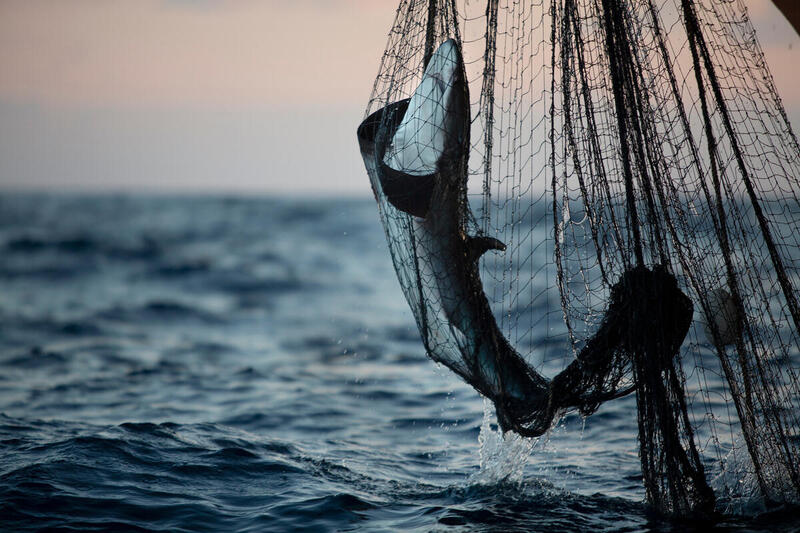
For scientists like me, having incomplete data is not a good scenario. The knock-on effect is that ocean management decisions are based on a lot of guesswork, and those with a vested interest in making money from the sea can take advantage of what we simply don’t know.
The most frustrating part to all this is that solutions exist to fill those data gaps. Cameras on all commercial vessels would give us the full picture of the impact this industry is having at sea, while also allowing us to manage and sustain its valuable resources, so much better. It would be a win-win, so what’s the hold up?
As pragmatic New Zealanders, it surprises me that we don’t recognise the problem for what it is, and then follow simple steps to fix it. If you get sick, you don’t skip diagnostic tests, and just pick a treatment and hope for the best, or worst, just ignore it. No, you want to know what you’re dealing with, so you can pick the best option for managing your health. The exact same is true for the ocean. We need cameras on boats to see the true scale of potential issues, and then set about working out the best ways to manage them.
Putting cameras on boats is vital to the preservation of the ocean, and all the life that finds a home there. I’ve never met someone who doesn’t believe that the ocean is worth saving, but it’s very easy to forget, ignore or be unaware of what’s out of sight, out there, on the open seas where we don’t roam. And apathy grows when an issue seems too big to solve.
I’m here to tell you that a different outcome is possible. I am sure you as a caring Kiwis think it’s a no-brainer that we should improve transparency, for the sake of endangered animals and the management of the valuable resources we harvest from the sea. Why wouldn’t you support this? Who’s losing in this equation?
The only logical reason for resistance would be those who have something to hide, or practice in ways which are adverse to the environment they exploit and yet do nothing to re-sow. If there is resistance here, surely the policy makers, who represent us, should enable and ensure that we can create meaningful and lasting change for the ocean. So, it would appear that what we need the politicians that represent us, politicians that act in our best interest, the New Zealand public’s best interest and not a small handful of lobbying shareholders for commercial fishing corporates. We need politicians to act on our behalf, as they are employed and empowered to do.
For years, different New Zealand governments have promised to deliver cameras on 100% of the commercial fishing fleet. This would give us transparency around an industry that’s operated in the shadows. It would give us accurate reporting of what’s happening off our shores and enable the best management data possible to ensure its future. However, with inaction, the ocean – and all of us that depend on it – are running out of time.
I guarantee that if we do not obtain transparency in our fisheries through cameras on boats, we will continue to see a decline in the state of the ocean. We’ve got a chance to turn this around, but we’ve got to stop doing things the same way and expecting a different outcome.
Despite our data deficiencies, we know that 28% of our dolphins, whales and seals, and 90% of our seabirds are threatened with extinction in New Zealand. This is not a legacy I want to leave behind. Is it the one you want?
My call to all New Zealanders is to help me get this change across the line at a Government level. It’s not too late, but the clock is two minutes to midnight. Join the campaign for cameras on 100% of the commercial fishing fleet by the end of 2023 and let’s protect the ocean for generations to come.Dr Riley Elliott is a marine biologist, shark expert and presenter for the Discovery Channel.
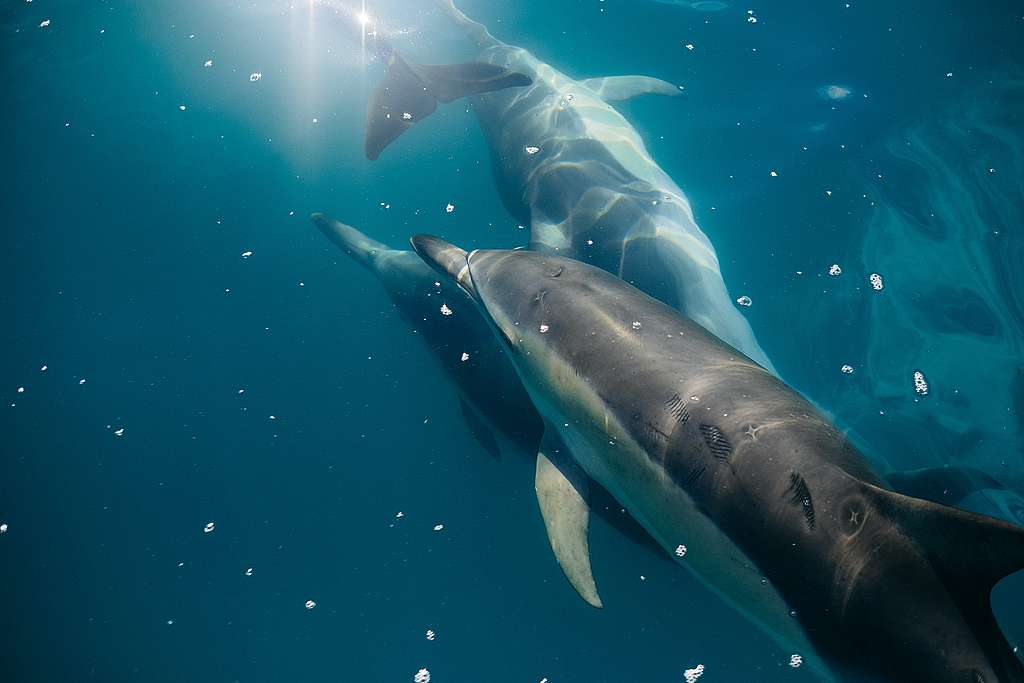
Call on the NZ Govt to commit to implementing cameras on the whole commercial fishing fleet. I want to see a clear plan to meet this deadline and transparent reporting on progress of that plan.
Take Action
